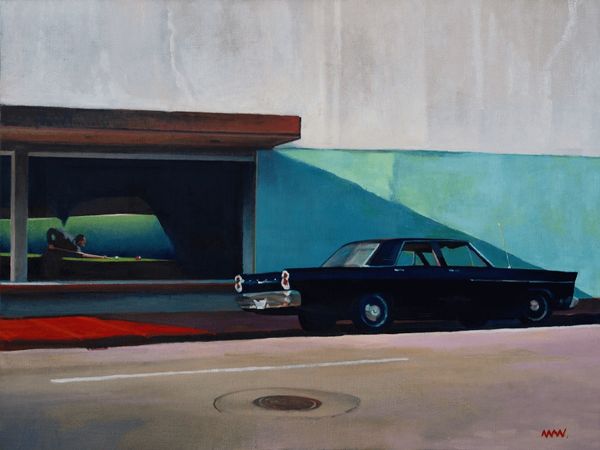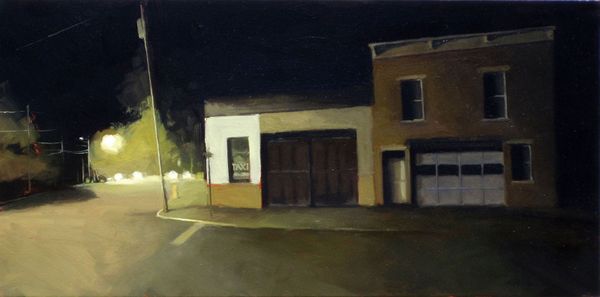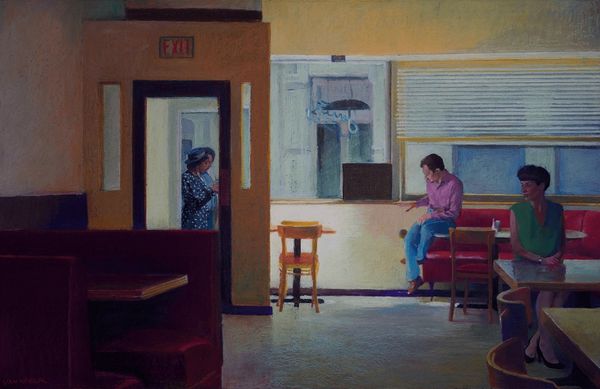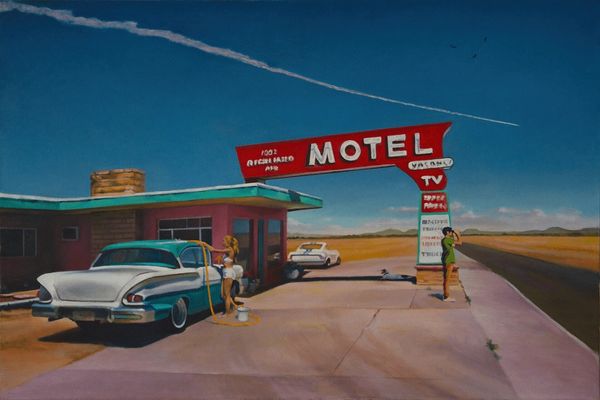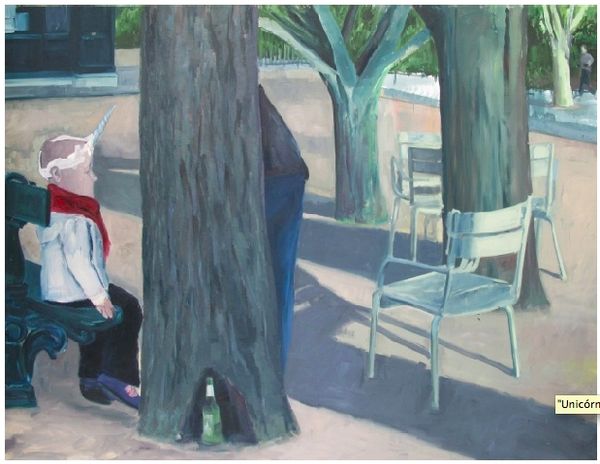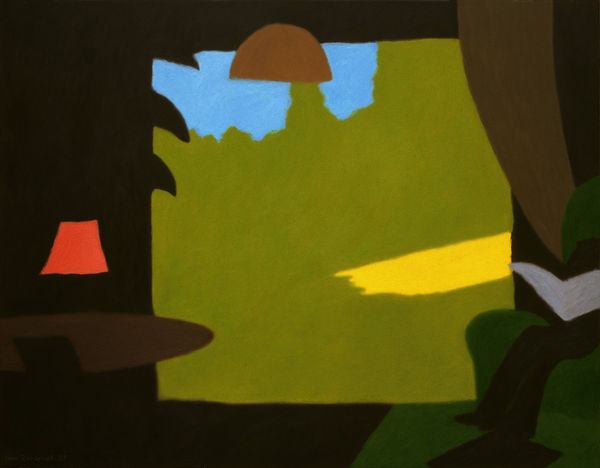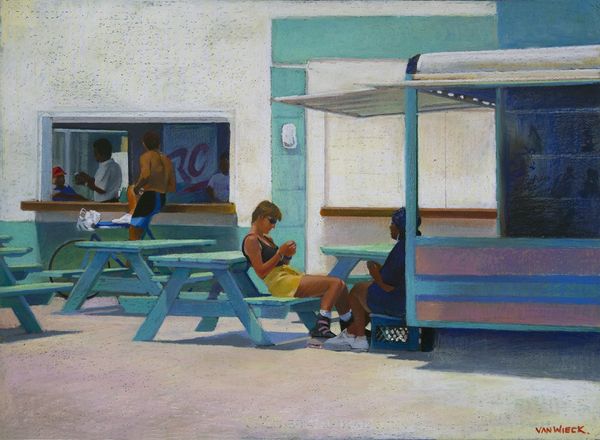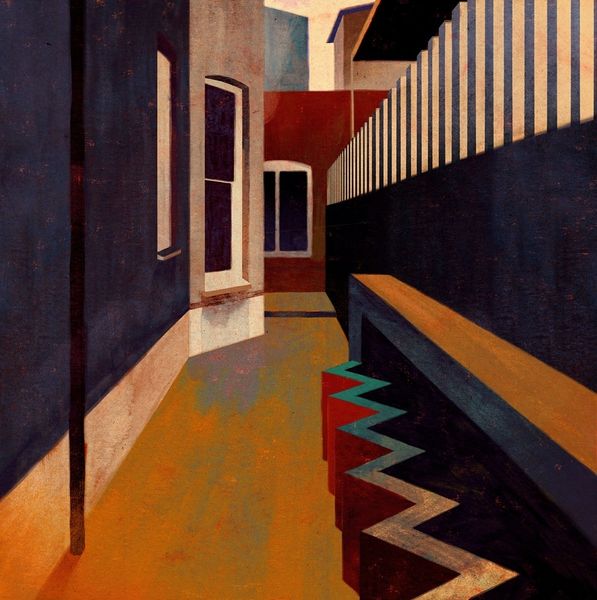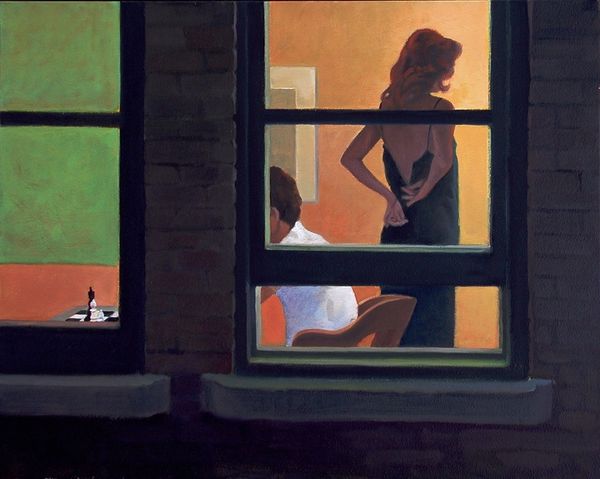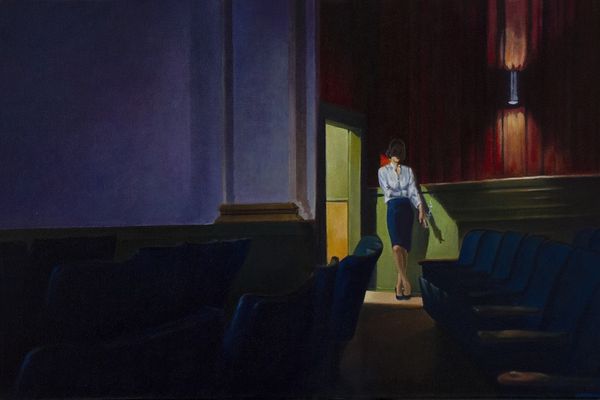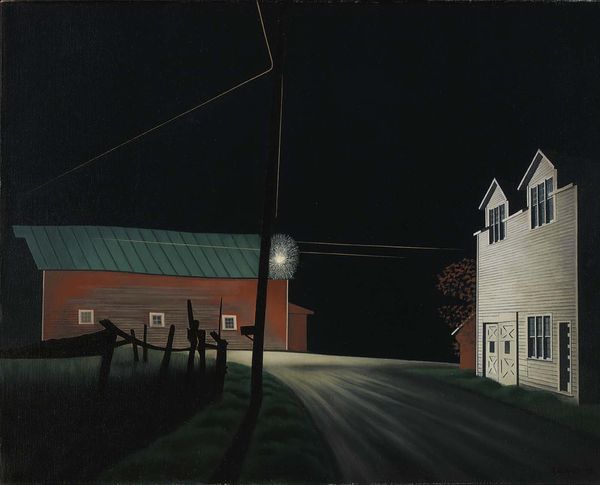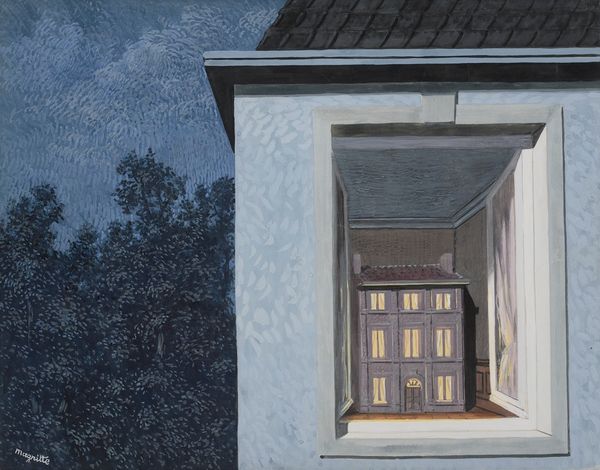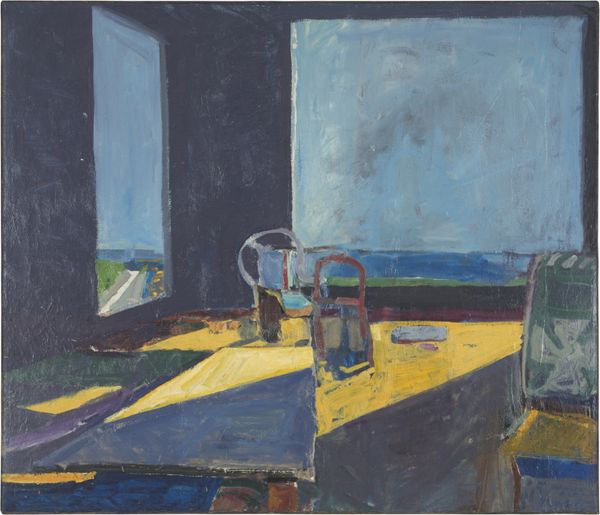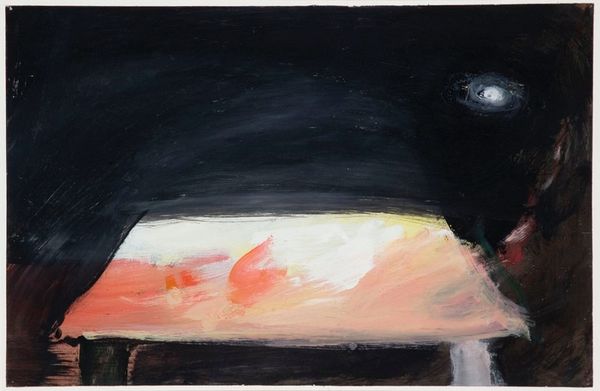
painting, acrylic-paint
#
painting
#
landscape
#
acrylic-paint
#
cityscape
#
modernism
#
realism
Copyright: John Register,Fair Use
Curator: Looking at this painting by John Register from 1991, titled "Motel, Route 66," made with acrylic paint, one can consider how it grapples with themes of American isolation and the changing landscape of the open road. Editor: My first thought? Quiet. A real quiet hums off of this canvas. And the lighting, that electric glow slicing through the darkness—it feels like a forgotten dream, doesn't it? Curator: Definitely a poignant atmosphere. Register often focused on the mundane aspects of urban and roadside scenes, really spotlighting feelings of alienation. I find myself thinking about the socio-economic shifts impacting these spaces at the time and even how the construction of the interstate system has contributed. Editor: Absolutely. There’s a loneliness that creeps in, sure, but I can't help but feel some kind of odd nostalgia too, you know? It's like that melancholy that hangs heavy as you drive across state lines, when even fast-food joints start whispering forgotten stories. Plus, look at the simple geometric shapes—it’s almost meditative. Curator: Exactly. I would say this modern-style rendering plays on themes that explore late capitalism. Route 66 carries so much baggage in terms of the ideal and failed promise of progress, which becomes really evident through Register’s dedication to depicting an unsentimental outlook on modern life and its effects. Editor: In its simplicity there is honesty. It is that brutal sense of realness that almost anyone can recognize, isn't it? I look at this, and a memory floats up—a random gas station on some lost highway at night with its lights shining and someone working the late shift counting down until they get out. Curator: That’s such an evocative response! Ultimately, I think what strikes me most is how a scene so seemingly unremarkable can spark so many rich conversations about the complexities of the American experience. Editor: For me it's more that Register gives you a reason to feel for places you thought you had passed by—the places no one bothers to look at, and, if you look close enough, how something there might look back.
Comments
No comments
Be the first to comment and join the conversation on the ultimate creative platform.
